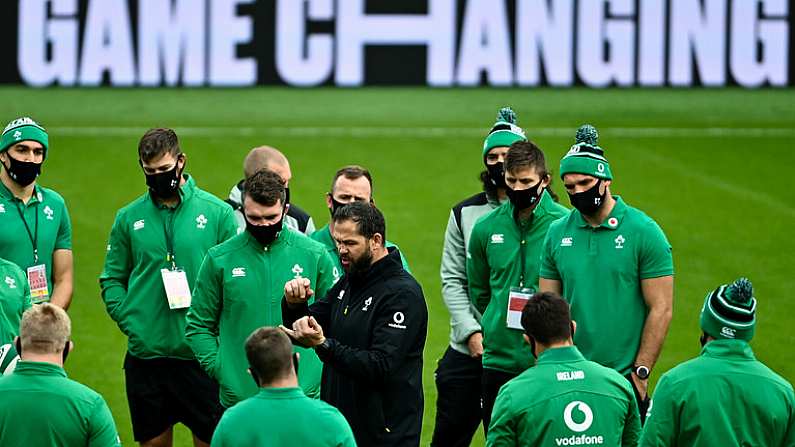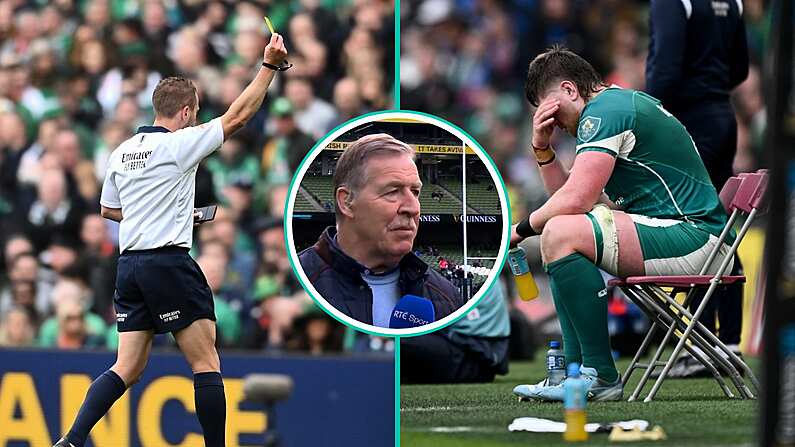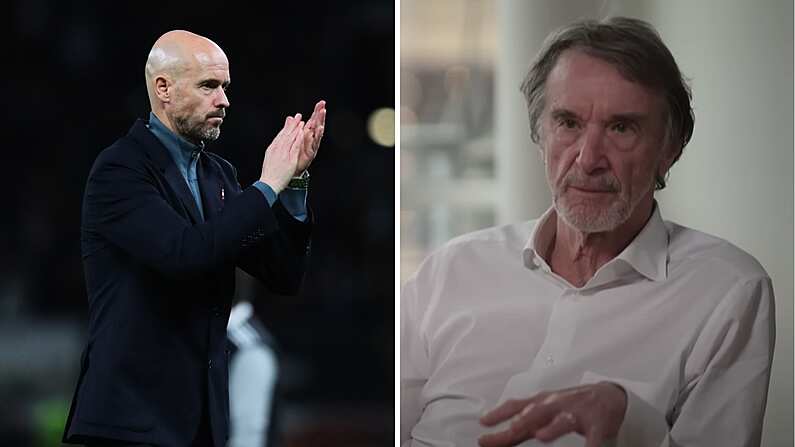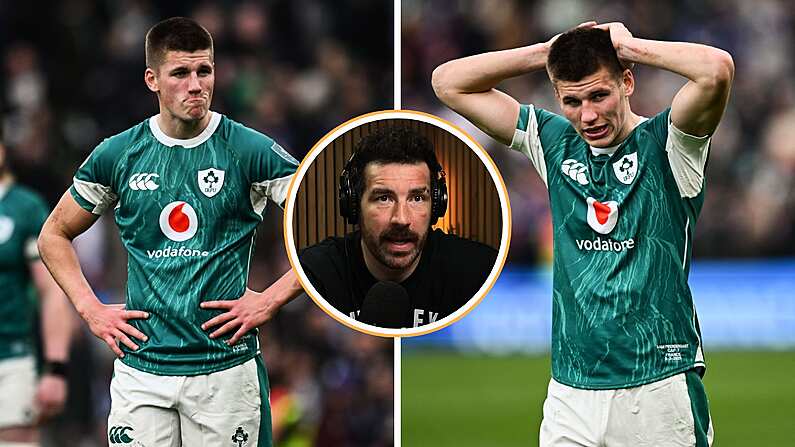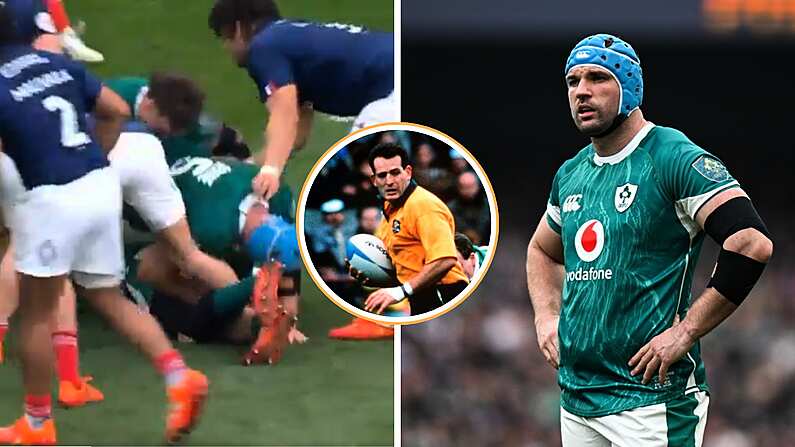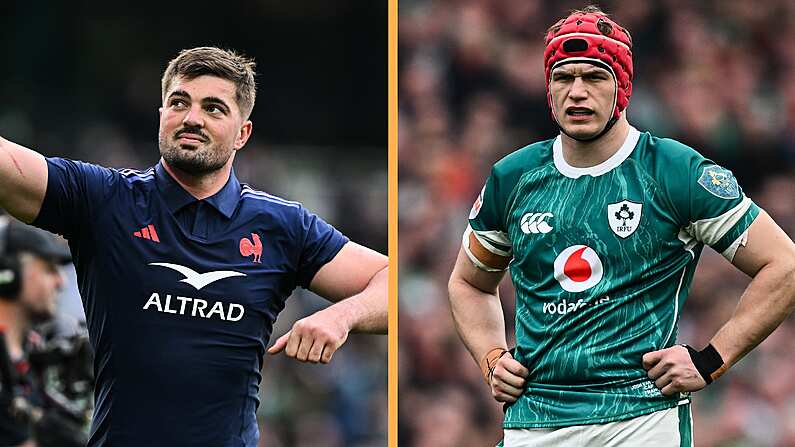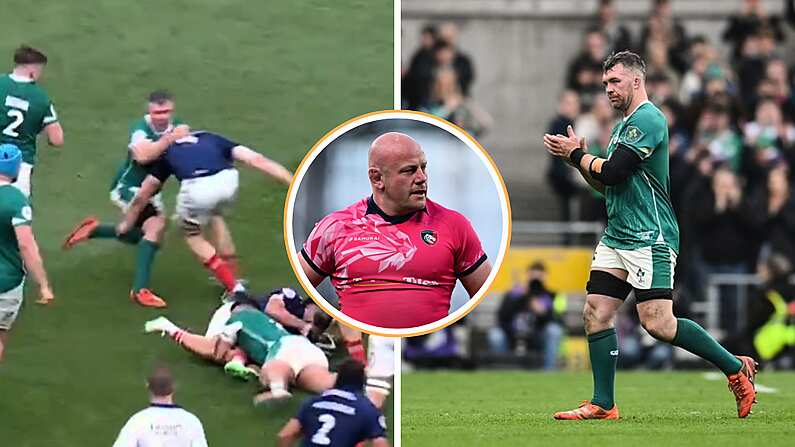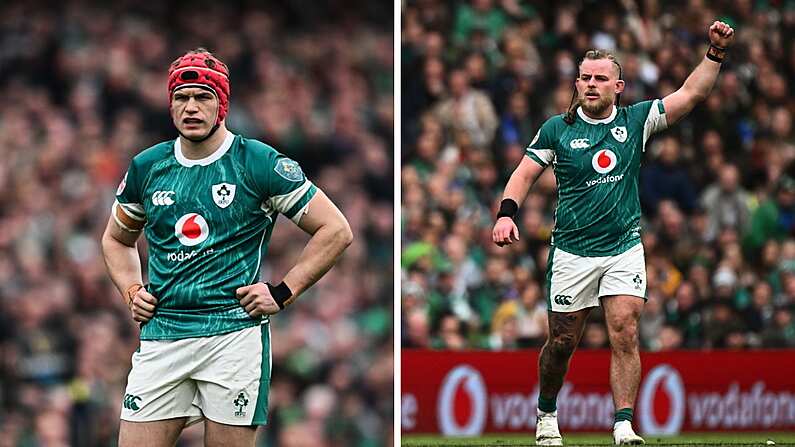The win over Scotland at the Aviva on Saturday brought the curtain down on a year of transition for the Irish rugby team. 11 players were capped this year as Farrell gave 42 different players gametime in green. James Ryan was given his first real run as captain. Ireland won seven games and lost three games in the calendar year. Scotland and Wales were defeated with relative ease twice. England beat Ireland comfortably at Twickenham twice. France did similar in Paris.
After five seasons where Ireland could confidently describe itself as the best country in the Northern Hemisphere, a nadir was reached in 2019. Andy Farrell has had twelve months to implement his vision but it remains unclear whether Ireland are forging a new road or remain stagnant and scarred from the calamity of last year.
There are optimists, like the Ireland captain Johnny Sexton, who see plenty of reasons to be hopeful.
'Have we gone backwards? Not when you compare it to 2019. If you go and compare it to 2018, then obviously. We went backwards in 2019, the same team went backwards.'
Then there are pessimists like Shane Horgan, who see Farrell as a 'continuity coach' whose mission is fatally flawed, a coach 'who's not an innovative thinker, who's implementing a gameplan that I think is out of date.'
The truth may lie somewhere in between.
Softies?
Rassie Erasmus's softies jibe echoed throughout the most frustrating moments of this autumn campaign for Ireland, namely the loss at Twickenham and the second half against Georgia. Obviously the Ireland team aren't soft. But this year, Ireland were repeatedly outmuscled by bigger opposition. This problem goes bigger than who is coaching Ireland.
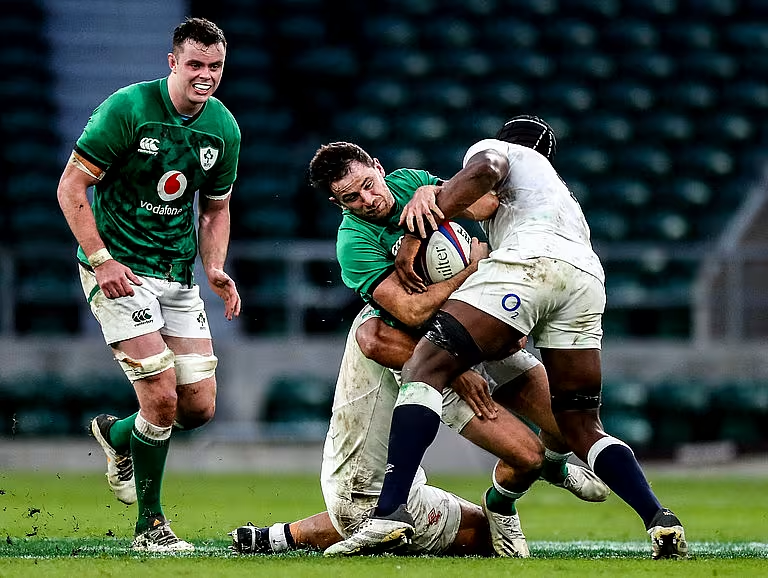
Speaking on the Buildup with Ladbrokes, Stephen Ferris made this point very clearly.
I think you’ve got to look at the strength & conditioning and getting the players physically big enough and strong enough to compete in international rugby because that’s where the game is. It’s not where it’s going. It’s where it is right now! You look at England and what they’re doing at the minute. You look at South Africa what they’ve done over the past few years. You look at Argentina and the physicality they brought against the All Blacks. That’s where the game is.
Here in Ireland, we’re not genetically blessed like the Pacific Islanders and we need to work really hard at that. It’s a very interesting subject at the moment. I don’t have an answer for it. That’s what Andy Farrell, David Nucifora, everyone involved in Irish rugby has to do to get back to those heights.
Hopefully we’re not too far away, but this current group of players just aren’t physically big or strong enough to compete with the top three or four international sides.
One of the most disturbing stats from the Autumn Nations Cup was the tackle count from England v Ireland.
Tackle count: England 232 (nine missed), Ireland 64 (11 missed). My word.
— Ben Coles (@bencoles_) November 21, 2020
Ireland's power game was completely neutered by the England forwards. Perhaps an armwrestle with these teams is not the way to beat them.
Ferris was speaking after watching Ireland's hugely disappointing performance against Georgia. He had a front row seat for the match with RTÉ and seemed troubled by what he saw.
'The physicality, the aggression that the Georgians showed in defence, Ireland couldn’t live with that. At the minute, it’s worrying when a Georgian team can come into the Aviva and had parity for 50 minutes of the match.

Speaking on The Takeaway with Chicago Town, Chris Henry, Ferris's former backrow teammate with Ulster, said that Ireland's lack of physicality leaves us chasing the elite nations.
'The biggest question is who we're playing against. Scotland, Wales, we’ll be able to beat them because we have smart rugby players. But the question is, when we come up against the better sides, the Southern Hemisphere nations, can we create the power plays? I think that’ll be our Achilles heel. Can we match the physicality and the power athletes when we come up against it? If we’re playing England or France and they’re at 90% will we win? At the moment, I don’t think so.'
A 9-10 Axis on the wrong side of 30

Clearly the biggest gain for Ireland over the past year is the undeniable depth we have at so many different positions on the field. Unlike past years where the Irish XV largely picked itself, Farrell has real options to make when it comes to picking a backrow, wingers, and a centre partnership. Darren Cave repeatedly made this point on The Takeaway: no one knows what Ireland's best team is anymore. Caelan Doris, Hugo Keenan and Will Connors all had massively encouraging autumns. But ironically, this autumn has only emboldened that old guard at scrum-half and out-half, the two positions that could really benefit from competition.
Henry again.
This autumn we wanted to find out depth charts and pecking orders and the big disappointment is we still don’t know who’s coming after Johnny Sexton and Conor Murray. It’d be so nice to know who is going to step up after those two and we still don’t know.
On the basis of this autumn, Johnny Sexton's talk of being involved in the Ireland 2023 World Cup squad at age 37 don't sound ludicrous. Darren Cave said Sexton is clearly Ireland's best option at outhalf.
'There’s been a real void left behind Johnny Sexton. I think Ross Byrne is a really good player but I’m not sure whether he’s at international level. I think he gets a bit of an armchair ride at Leinster. Jameson Gibson Park had a pretty good autumn but he might go back to Leinster and sit on the bench. For me, Conor Murray is the best scrum half in Ireland, and if he can maintain that, I think that’s a very good thing for Ireland.'
See you in nine weeks
It all leaves Andy Farrell in a tricky position. There are clearly outstanding players coming up through the ranks, but against France in the Six Nations decider and at Twickenham last month, Ireland lacked both the physicality and the invention to get around bigger teams. The Six Nations returns in nine weeks, with England and France travelling to Dublin in 2021. Asked if Ireland has progressed or regressed in the past year, Henry paused before saying he sees the glass as half-full.
'I think progression because he’s given guys chances. Guys like Eric O'Sullivan, Connors, Dorris. We’ve got a bit more depth,' he said. Rugby is an attritional at Test level, so depth is no bad thing. Ireland will need more than bodies to win the Six Nations though.
We can only imagine how challenging it must have been to take on this job in this year. But for now, the jury remains out on Andy Farrell as the coach to change Ireland's fortunes.

